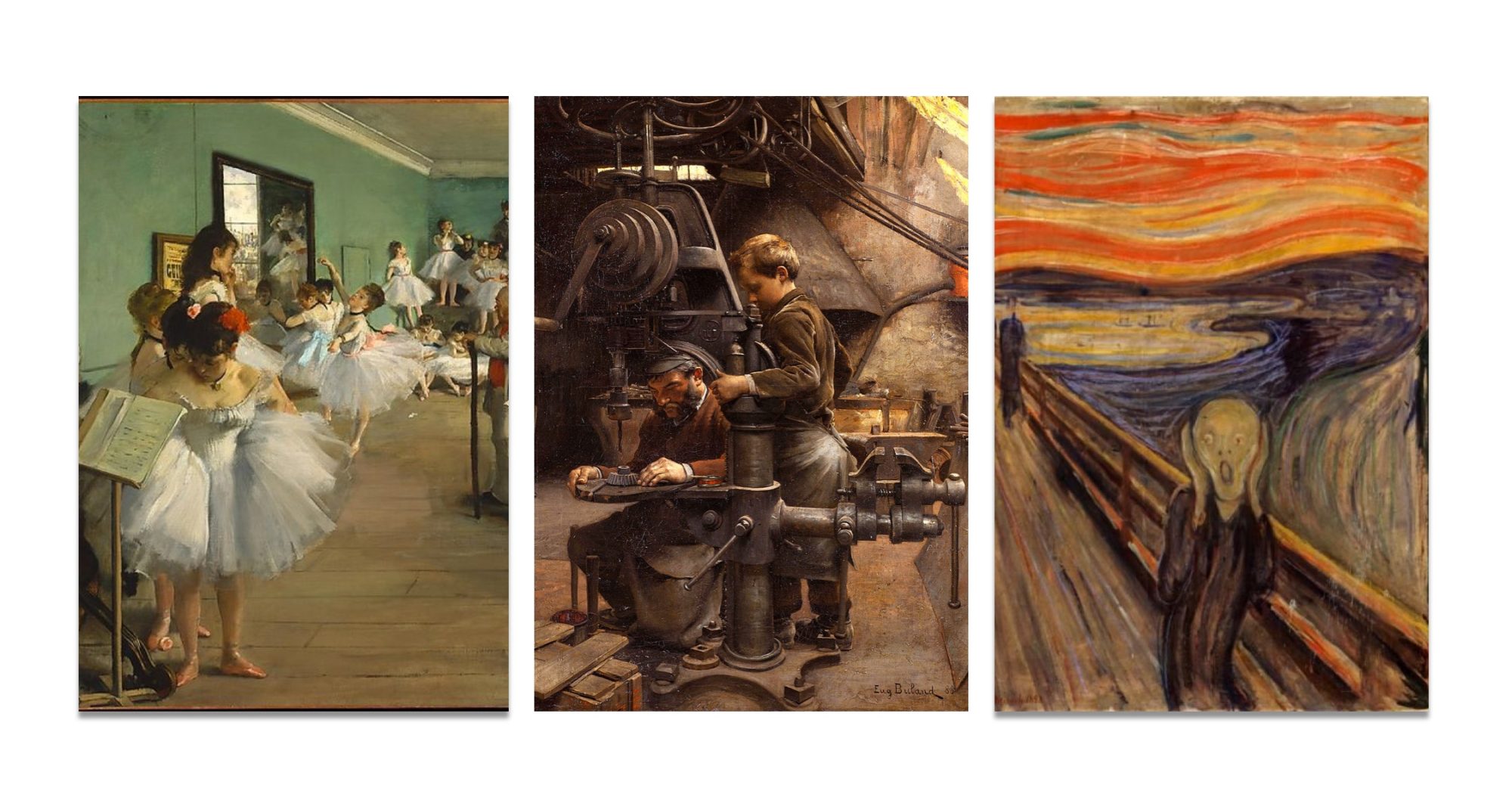La Mélinite: Moulin-Rouge
Arthur Symons, 1895
Olivier Metra’s Waltz of Roses
Sheds in a rhythmic shower
The very petals of the flower;
And all is roses,
The rouge of petals in a shower.
Down the long hall the dance returning
Rounds the full circle, rounds
The perfect rose of lights and sounds,
The rose returning
Into the circle of its rounds.
Alone, apart, one dancer watches
Her mirrored, morbid grace;
Before the mirror, face to face,
Alone she watched
her morbid, vague, ambiguous grace.
Before the mirror’s dance of shadows
She dances in a dream,
And she and they together seem
A dance of shadows,
Alike the shadows of a dream.
The orange-rosy lamps are trembling
Between the robes that turn;
In ruddy flowers of flame that burn
The lights are trembling:
The shadows and the dancers turn.
And, enigmatically smiling,
In the mysterious night,
She dances for her own delight,
A shadow smiling
Back to a shadow in the night.
Single word: “Enigmatically”
From the OED.com
-Enigma
a. A short composition in prose or verse, in which something is described by intentionally obscure metaphors, in order to afford an exercise for the ingenuity of the reader or hearer in guessing what is meant; a riddle.
b. In wider sense: An obscure or allusive speech; a parable (obs. exc. as transf. from 1a).
2. fig. Something as puzzling as an enigma; an unsolved problem.
-Enigmatic
Pertaining to, or of the nature of, an enigma, containing or resembling an enigma: ambiguous, obscure, perplexing. Of persons: Mysterious; baffling conjecture as to character, sentiments, identity, or history.
The word enigmatically is significant to this poem because it envelopes the entire idea of the poem. The word enigmatic/enigma lead to the idea of ambiguous, vague, shadow, and unsolvable problems. The word is used throughout the poem in many different ways to describe the state the dancer is in. She is lost amid a crowd and when she finds her reflection in the faces of others it is not as it should be. It is morbid, and ambiguous. She herself has become an enigma, she is puzzling, no-longer herself, defined by many. The word enigma also emphasizes the shadows she is dancing in; the lights tremble and cast different view on her from every angle, every turn she makes. The shadows highlight the definition of an enigma because the shadows are different throughout the entire hall; they are constantly changing as she dances and moves. As her shadows change so do the definitions of self that the viewers are applying to her. That idea in itself is an enigma because it is constantly changing. Finding the true definition of the dancer remains an unsolvable problem. The dancer is defined to all those watching in their own way but remains a mystery to herself.
The final stanza where the word is actually used:
And, enigmatically smiling,
In the mysterious night,
She dances for her own delight,
A shadow smiling
Back to a shadow in the night
Gives the image of the dancer smiling but enigmatically, that is to mean that she is a mystery to herself and because of that she remains a mystery to those watching. It shows a somewhat acceptance of not knowing and allows the dancer to continue on dancing in her own shadows remaining mysterious and undefined. She returns to her shadow, her puzzling definition of self and remains an enigma to all, including herself.
Overall the single word enigmatically describes how the dancer lives her life. She lives in mystery, staying in the shadows of herself, and appearing in the shadows to others.
-Christine Sweet
